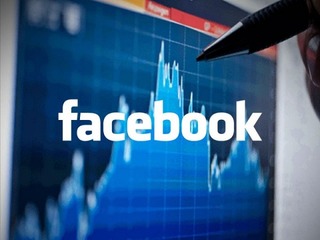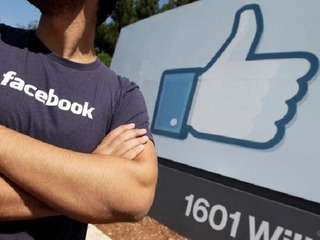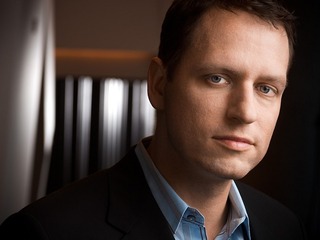
The day Facebook, and its investors, has finally come. After two previous lockout periods ended with Facebook’s stock down, Wednesday saw the largest amount of shares freed. Instead of sending it into freefall though… the stock actually soared!
Facebook’s stock was up as high as 11.2% earlier today, to a high of $22.09, as 800 million shares of employee stock became available for trading.
The stock is now up 7.75%, trading at $21.40 a share.
I suppose we all should have seen this coming. On Monday, even though the stock dipped to a low of $18.87, it’s lowest since October 19, when it hit $ 18.80. The stock was able to rally, though, finishing up 4.48%, at $20.07 to stop a five-day skid.
The stock was also up on Tuesday as well, indicating that investors had confidence that it would be able to ride out the wave of its biggest lockout.
While there is still plenty of trading to do Wednesday, it would seem that Facebook has weathered the potential storm of its first three lockups.
Over 271 million shares were freed to be sold by executives and investors in August and, as a result, the stock fell nearly 5% to $20.17, its lowest levels yet at the time, down to nearly 50% of its IPO price.
Then, at the end of October, 230 million shares held by employees and executives were freed and the stock dropped 3.79% to $21.11.
Facebook will see two more lockups end. The next one occurs in one month, on December 14, when 149 million shares will be available to be traded. Then, on May 18, 2013, 47 million shares will be allowed to be traded. Since these last two lockups are significantly lower than the previous ones, there is no reason to believe that they will have a major impact on the stock performance.
What is inspiring investor confidence?
There is the thought that Facebook’s stock, which is down nearly 50% from its $38 IPO in May, does not have much further to fall, which has stopped investors from short selling.
There might also be confidence in the stock given how Facebook executives, and early investors, have largely held onto their shares.
After the first lockup ended, it came out that Peter Thiel had sold off over 20 million shares of Facebook stock at prices between $19.69 and $20.70, netting him roughly $406 million.
But the truth behind that story was that Thiel had actually sold off his stock months before, using a rule that allows executives and directors in a company to sell their stock before they have any inside knowledge so that they cannot be accused of insider trading.
He had essentially sold off a large part of his stock months before.
After the second lockout, it became known that COO Sheryl Sandberg, General Counsel Ted Ullyot, and Chief Account Officer David Spillane all sold at least a portion of their shares.
In advance of the lockup period ending, Sandberb, Ullyot, Spillane, along with three other Facebook executives, marketing VP David Fischer, VP of engineering Mike Schroepfer, and CFO David Ebersman, all filed forms with the SEC to convert their restricted stock units into class-B shares. In all, more than 45 million shares were converted.
Sandberg sold around 353,000 shares. 13,392 shares were sold at $20.79, and the other 339,512 were sold at $21.09 a share, netting her $7.4 million. Given that she still owns around 20 million Facebook shares, the amount that Sandberg sold off was relatively small, less than 2%, even though she sold the most shares of all three executives.
Ullyot sold a total of 149,075 shares. He sold 142,375 of the shares at $20.10, and the other 6,700 at $21.14, bringing it to a total of $3.13 million. Ullyot still owned another 1.27 million shares.
Spillane sold 256,000 of his 863,000 shares. Selling them at $21.04, he netted $5.4 million total.
According to an 8-K filed in September with the SEC, Mark Zuckerberg will not be selling his Facebook shares for at least a year.
Zuckerberg holds roughly 444 million shares of Class B common stock as well as 60 million shares of Class B common stock issuable upon the exercise of an option.
Two Facebook directors, Marc Andreessen and Donald Graham, also announced that would be selling off some personal stock to pay their RSU tax bill, but that they will not be selling off any shares beyond that.
With its three biggest lockup periods mostly behind it, perhaps Facebook’s stock will finally stabilize.
(Image source: http://www.technobuffalo.com)






















